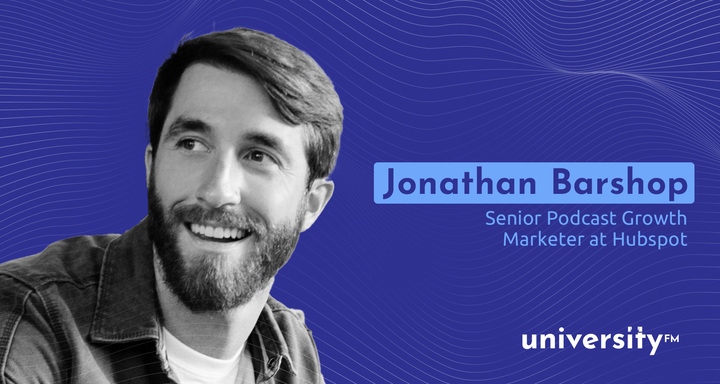Whether your mission is to reach more potential students or highlight your campus culture, podcasting is a great channel to show what it’s like to be part of your community. A recent study shows that podcast listeners have become more invested and engaged. In fact, an average listener consumes 8 podcasts per week, while avid ones tune in to 11 episodes. This article will explore why podcasts are an essential element of any marketing mix.
1. Podcasts Build Trust and Credibility

Sound expert, Julian Treasure, emphasized that the human voice is one of the most powerful sounds in the world. It’s crucial in conveying critical information that often gets lost in its written counterpart. It allows you to create an intimate experience for your audience compared to other platforms. Research shows that emotions portrayed in our voices influence other people’s moods.
Your perception of someone changes when you hear that person’s voice constantly. It humanizes the listener’s experience every time they hear the host and guests. As your community listens to your podcast, the more valuable information you pour out to them. Your listeners spend more time with you than they would on any other platform. This is why podcasts increase trust and credibility.
Embry-Riddle is all about helping students build productive careers and leadership roles in government agencies and the military. Its mission is to hone students who will lead in the aviation and aerospace industry. One of its alumni podcast episodes in Talon Talks featured a group of graduates who helped the U.S. air force evacuate refugees from Kabul, Afghanistan. The podcast demonstrates their commitment to help society. By producing this show, the school establishes confidence and reputation within the community and with potential students.
2. Podcasts Bring Your Culture to Life

Every institution has a unique organizational culture. For universities, culture is made up of connections, core beliefs, and behaviors of students, families, and educators.
UC Berkeley’s culture is a great example of this. They’ve always advocated for equity and inclusion, reshaping their policies and practices to increase opportunities, advance social justice, and create equitable experiences for all students, staff, and faculty. Haas Podcasts, the podcast network of UC Berkeley Haas School of Business, has done an impressive job highlighting its diverse culture by giving voice to its current students, alumni, and faculty. In fact, they have different series of shows for faculty, esteemed black students/alumni, women on campus, and even one for sustainability.
Podcasts are an excellent way to promote honest conversations that reflect your campus culture, while also letting listeners hear from people in your community.
3. Podcasts Encourage External and Internal Collaboration

Setting up your show lets you collaborate with prominent alumni and thought leaders in your community. Guests are willing to lend their time because podcasts are easy to work into their schedule, simple to set up and record, and let them grow their personal brand. Who doesn’t love being asked to come on the podcast show?
For instance, this episode from Leeds Business Insights (University of Colorado Boulder) features alumnus Clark Jones, Senior Vice President and CFO at Disneyland. Jones took the time during a busy workday to share his story and valuable insights about how he chartered a course for Disney resorts amid the pandemic. The podcast served as an indispensible tool to have a senior executive share their expertise and time, and give back to their alma mater.
Podcasts also encourage internal collaboration, connecting executive communications, alumni relations, and marketing teams. Eccles Business Buzz, a podcast for the University of Utah’s Business School, featured the school’s beloved Dean Taylor Randall. Dean Randall talked about his experiences as a student at the school and how the school transformed him into a leader. This episode invited collaboration between multiple internal teams for successful production and release.
Countless Ways to Integrate it into Your Marketing Plan
As marketers, we’ve often focused on creating content calendars and campaigns. One podcast episode is already a gold mine of material. It can be reused and embedded into your editorial calendar in so many ways. You can upload episode highlights as multiple bite-sized clips on Facebook and YouTube, turn them into a blog article, or use quotes as art cards for LinkedIn or Instagram.
Ready To Start Your Podcast?
Download our guide questions to help you decide if you’re ready to integrate podcasts into your marketing strategy.
Download Guide Questions



